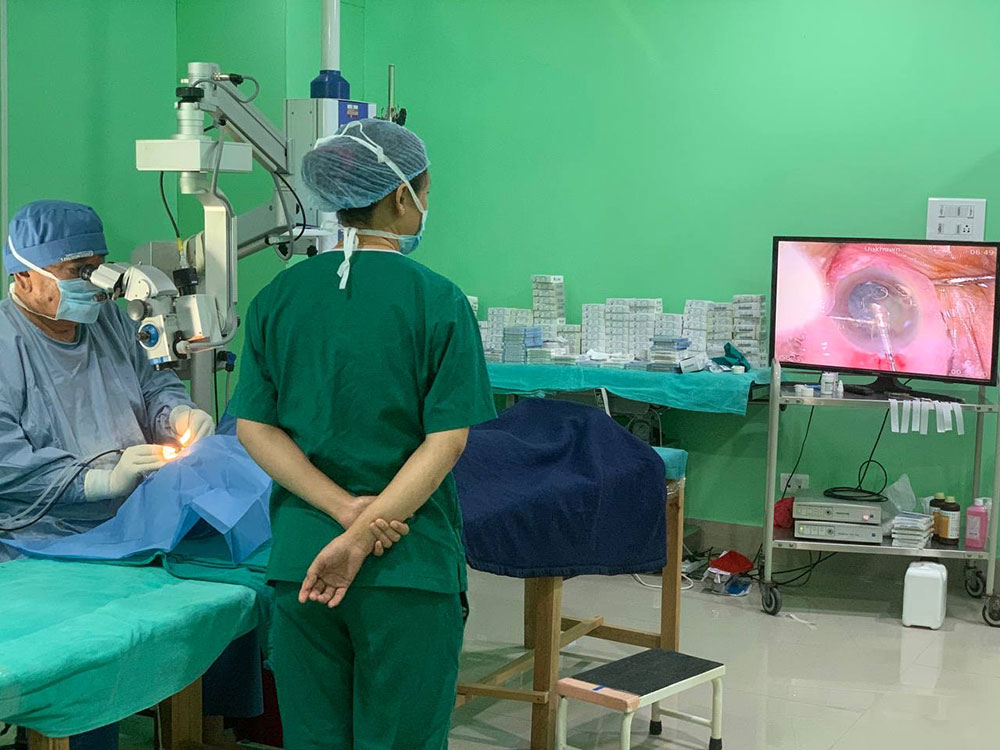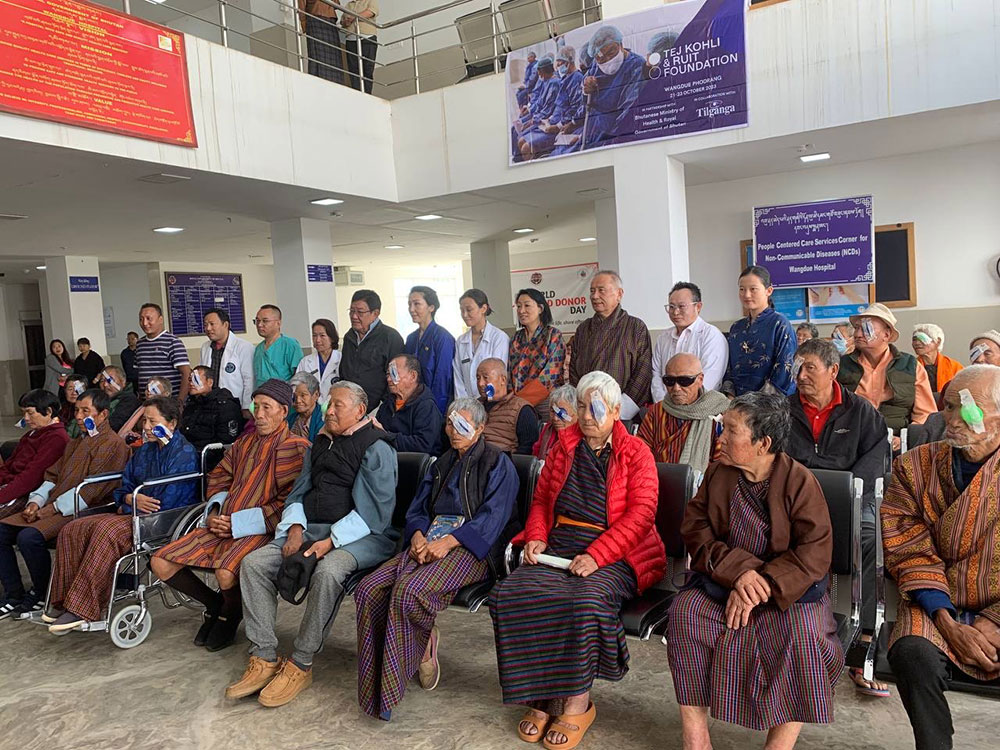Chencho Dema
Bir Maya Rai, a resident of Samtse, had her life profoundly changed when she went blind due to a stroke a few years ago. She believed she would be blind for the rest of her days, until a miraculous event unfolded at Wangdue Hospital on October 22.
At 55 years old, Bir Maya Rai’s sight was restored just a day before the festival of Dassai, marking a remarkable turning point in her life. For over a year, she had been living in darkness, unable to see the world around her.
Overwhelmed with gratitude, Bir Maya Rai said, “Now I can see my children and enjoy the celebration,” as tears of joy flowed down her face.
She extended her heartfelt thanks to Dr Sanduk Ruit and the medical team, also expressing her deep appreciation to Her Majesty Gyalyum Kesang Choeden Wangchuck for her noble initiative.

Around 14.2 percent of the population lives with some form of visual disability
Bir Maya Rai was not the only one to experience this miraculous transformation. Hundreds of patients had their vision restored, and they found it difficult to put their happiness into words. Among them were two elderly sisters, Nakey (84) and Bidha (82) from Wangdue, who had eye surgery on their right eyes on October 22.
Bidha shared her relief, saying, “It was awkward to look around with one eye blind, but I can see properly now. We couldn’t have done this without the camp’s help.”
These miracles were made possible through the Eye Camp at Wangdue Hospital, which began on October 21 and concluded under the Royal Patronage of Her Majesty Gyalyum Kesang Choeden Wangchuck.
The Ministry of Health, a technical team from JDWNRH, Dr Dechen Wangmo, Dr Deki and the Tilganga Institute of Ophthalmology from Kathmandu, Nepal, joined forces with world-renowned ophthalmologist Dr Sanduk Ruit to lead this initiative.
A total of 108 surgeries were performed during the three-day camp, thanks to the support of the Tej Kohli and Ruit Foundation (TKRF).
Dr Sanduk Ruit and philanthropist Tej Kohli co-founded the foundation, which has been instrumental in helping countries like Bhutan eliminate untreated cataract blindness.
In an interview with Kuensel, Dr Sanduk Ruit, often referred to as the “god of sight,” expressed his privilege in being part of Her Majesty’s noble initiative and transforming people’s lives and their families through this effort. He emphasised his commitment to working closely with the Ministry of Health to eliminate needless cataract blindness in Bhutan and strengthen the capabilities of local medical professionals.
Dr Dechen Wangmo, Head of the Department of Ophthalmology, stressed the importance of advocating for better health-seeking behaviour and eye care. She highlighted the primary eye care programme under the ministry, which includes conducting approximately 20 to 25 outreach surgical eye camps and clinics throughout the country annually.
Cataracts, dense and cloudy areas that form in the eye’s lens, cause hazy vision as proteins and fibers break down.
Dr Sanduk Ruit is a recipient of the National Order of Merit, Gold, awarded in recognition of his services in restoring sight to hundreds of Bhutanese.
Last year, during a cataract eye camp, 246 patients were cured, and 1,619 patients were screened in Wangdue and Thimphu. In Wangdue, 1,047 patients were screened, and 143 cases of blindness were treated. In Thimphu, 572 individuals were screened, and 103 people received treatment as part of the Foundation’s commitment to curing 5,000 people over five years.
According to the Tej Kohli and Ruit Foundation’s publication, “Our Mission, Bhutan”, approximately 10,460 people in the country are awaiting cataract surgery. Bhutan has made significant progress in reducing blindness by 33 percent since conducting its first Rapid Assessment of Avoidable Blindness (RAAB) survey in 2009.
Currently, 1 percent of Bhutan’s population is bilaterally blind, and 14.2 percent of the population lives with some form of visual disability.
In 2019, Bhutan’s first eye centre, named in honor of Her Majesty the Royal Grandmother, was inaugurated in Thimphu. The centre provides specialised eye care services and advances sub-specialisation in Ophthalmology in the country, with technical support from the Himalayan Cataract Project led by Dr Sanduk Ruit and funded by the Wen Giving Foundation.
The construction of the centre, initiated in 2017, came at a cost of USD 1.6 million.


